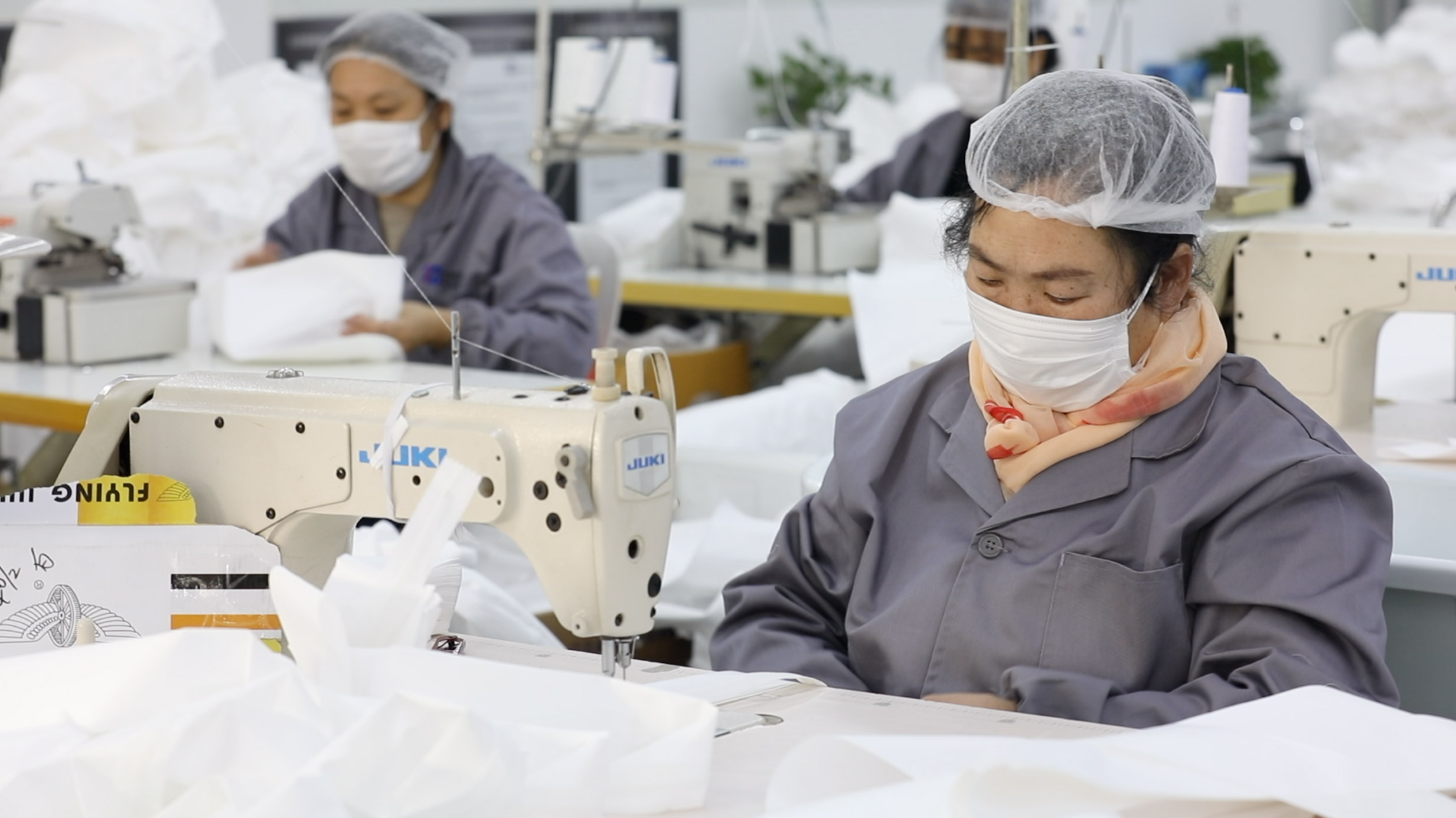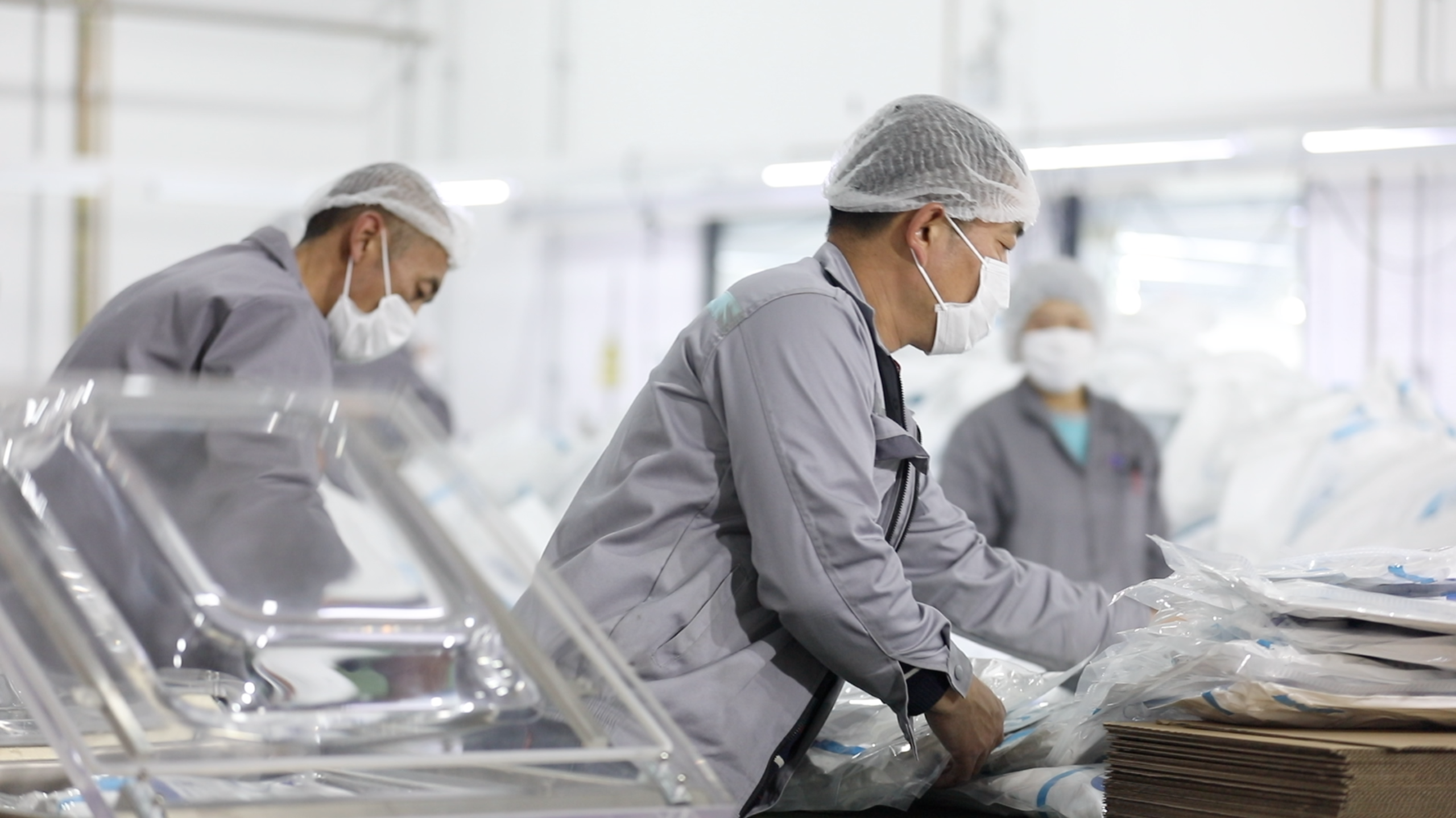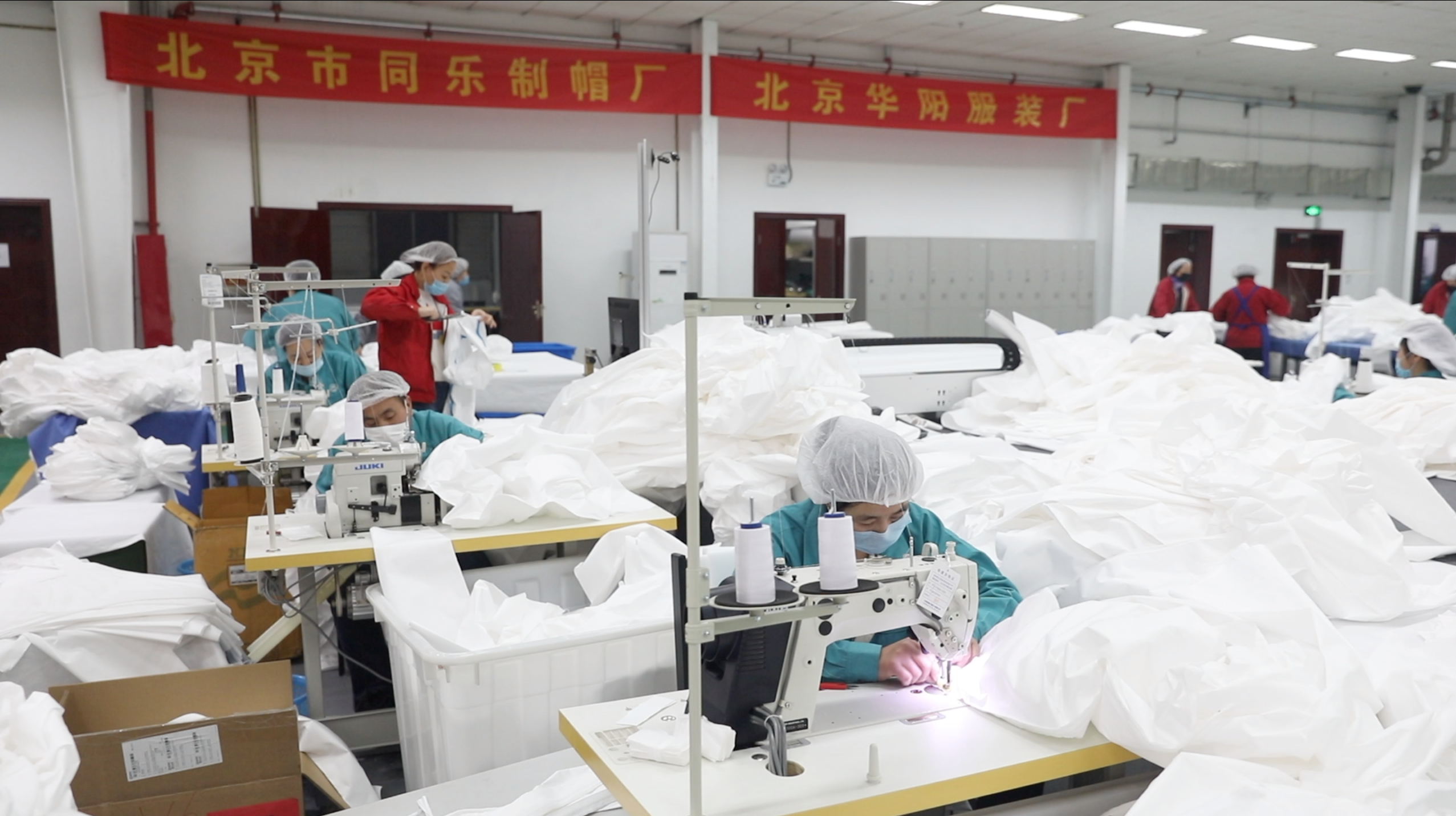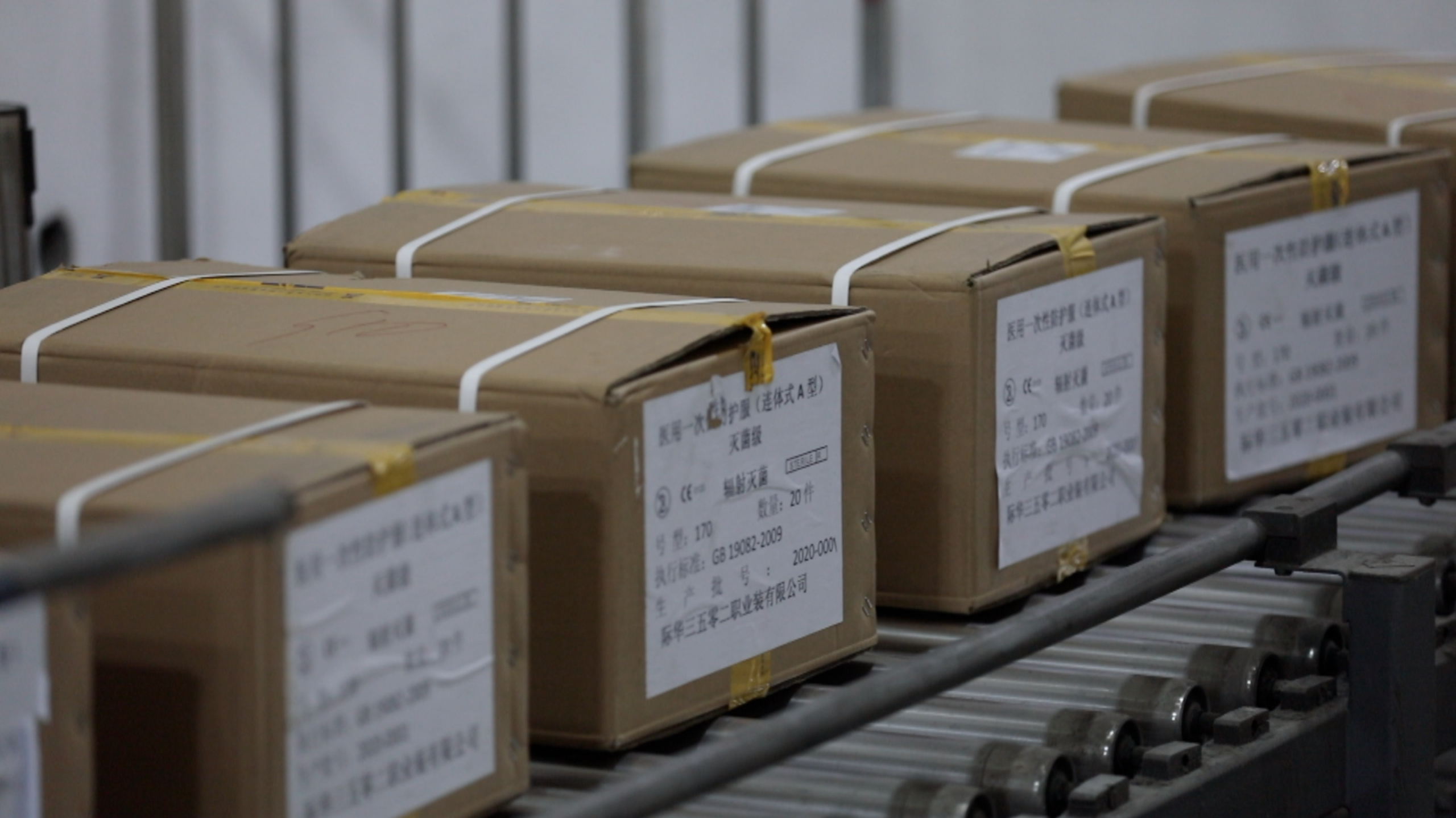02:17

Since the outbreak of the novel coronavirus, protective garments have been urgently needed in many places, particularly hospitals. Now thanks to a concerted effort, production has gained full speed, with the intent to ease the critical need of medical workers and others.
A CGTN reporter visited a protective garment manufacturing company on the outskirts of Beijing, one of those in China undergoing emergency production to help medical staff combat the novel coronavirus.
Wang Xuguang, president of the company named BW TechTextile, said that they had tried their best.

Workers were busy packing protective garments in a production line on Tuesday in Beijing. /CGTN Photo
Workers were busy packing protective garments in a production line on Tuesday in Beijing. /CGTN Photo
"On January 28, all our workers returned for the emergency call. But our working space and staff numbers lagged far behind the sharply increasing needs," he said.
The company canceled all other production plans and opened more spaces for garment manufacturing.
The labor strain was eased through a different strategy.
"Through coordination, three other garment factories came here to work together with us," Wang said.
Some 200 workers are working 12 to 13 hours each day on production lines.

Employees from four companies were working together in a protective garment production line on Tuesday in Beijing. The concerted efforts are to help ease huge demands on such clothing to combat the novel coronavirus. /CGTN Photo
Employees from four companies were working together in a protective garment production line on Tuesday in Beijing. The concerted efforts are to help ease huge demands on such clothing to combat the novel coronavirus. /CGTN Photo
An employee named Feng Xiaoyi said that this is what she and her colleagues hope to do.
"On the fourth day of the Lunar New Year, we answered the call to come back despite difficulties like the lockdown in our villages given the epidemic. Now we work overtime, but we hope to contribute to the fight against the novel coronavirus," she said.
After efforts for over two weeks, the company is reaching a relatively satisfactory production capacity of 4,000 garments each day.
"We are trying to organize more staff to make 8,000 each day," said the company's president.
After the protective clothing comes off the production line, it has to be sterilized before going into hospitals. To increase the efficiency of this process, an emergency regulation has just been issued.
Instead of using disinfectants like ethylene oxide, irradiation is allowed.

An irradiation sterilization station belonging to the China Isotope and Radiation Corporation is operating in Beijing. The Chinese State Council issued an emergency regulation on Friday allowing irradiation as a method to sterilize protective clothing before it hits the market during the novel coronavirus epidemic. /CGTN Photo
An irradiation sterilization station belonging to the China Isotope and Radiation Corporation is operating in Beijing. The Chinese State Council issued an emergency regulation on Friday allowing irradiation as a method to sterilize protective clothing before it hits the market during the novel coronavirus epidemic. /CGTN Photo
Yang Lijing, a product manager from the company said that the process was usually done in sterilization stations outside the company.
"The method shortens the disinfection period from 14 days to just one day. It has no need to resolve the residues of traditional harmful materials in a long time, and therefore delivers products instantly," Yang said.
According to reports from the China Isotope and Radiation Association, irradiation sterilization is a well-established standard process in countries such as the United States and Japan where almost 50 percent of medical goods are processed via this method.
Considering the cost and newly established safety standards, the emergency regulation will only be effective until the end of the epidemic.
Many irradiation companies vowed to provide such services for free.
Now given that production lines and sterilization stations nationwide are going all out during this emergency situation, they hope to ease the critical need for protective garments.
(Cover photo: Workers sew protective garments. /CGTN Photo)